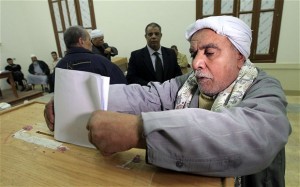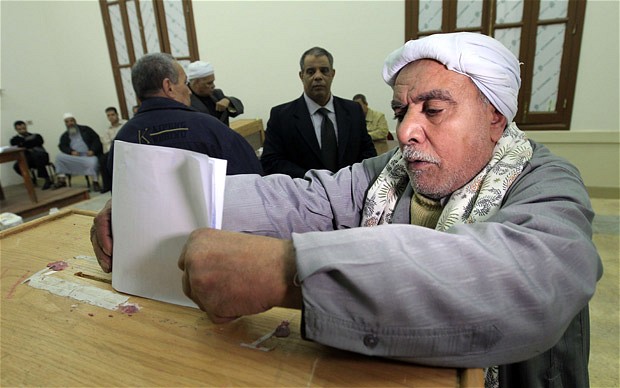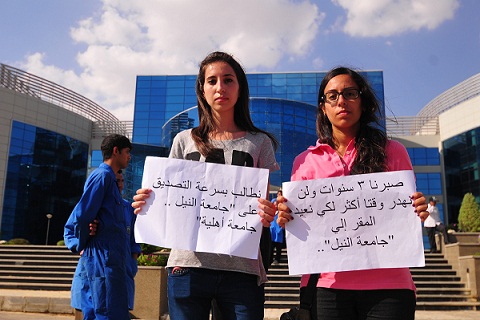
(AFP Photo)
The Administrative Judiciary Court ruled to suspend the upcoming House of Representatives elections and referred the parliamentary election law to the Supreme Constitutional Court on Wednesday.
The administrative court suspected the election law was unconstitutional and referred it to the Constitutional Court for review.
The ruling means that elections for the lower house of parliament, initially scheduled to start on 22 April, will be postponed until the Supreme Constitutional Court deems the electoral law constitutional.
The law, drafted by the Islamist-dominated upper house of parliament, the Shura Council, was initially sent to the Constitutional Court before passing and being signed into law by President Mohamed Morsi, as per the provisions of the new constitution.
Article 177 of the constitution states that the Supreme Constitutional Court has power to deem laws unconstitutional and reverse them except for electoral laws, for which it only gets prior review.
Parliament is supposed to send the draft law to the court before voting on it to determine its constitutionality. The court then returns the draft law back to parliament, and if it deems the draft unconstitutional, attaches the required amendments.
The Shura Council did send the law to the Supreme Constitutional Court, which in turn determined it unconstitutional and attached the required amendments.
Shura members of parliament amended the drafted election law but failed to return it to the court to ensure the amendments fall in line with its ruling, instead referring it to President Morsi, who immediately signed it into law and called for elections.
Opposition groups denounced this move and argued that the Shura Council should have sent the law back to the Supreme Constitutional Court a second time to ensure the amendments fell in line with the court’s vision.
A lawyer and Shura Council member from the Ghad Al-Thawra Party filed a case with the Administrative Judiciary Court against Morsi and Shura Council Speaker Ahmed Fahmy, arguing the elections would be invalid and unconstitutional if the Supreme Constitutional Court did not deem the election law constitutional.
Morsi called for elections in February, to be held over four stages, each with a runoff round. The elections would have begun in April and ended in June, the longest election process in Egyptian history. The House of Representative was initially scheduled to convene on 6 July.
The National Salvation Front, the largest secular opposition coalition, announced it would boycott the election and cited the elections law being unable to guarantee the fairness of the poll as one of its reasons.

